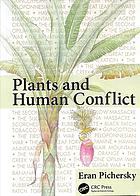

Most ebook files are in PDF format, so you can easily read them using various software such as Foxit Reader or directly on the Google Chrome browser.
Some ebook files are released by publishers in other formats such as .awz, .mobi, .epub, .fb2, etc. You may need to install specific software to read these formats on mobile/PC, such as Calibre.
Please read the tutorial at this link: https://ebookbell.com/faq
We offer FREE conversion to the popular formats you request; however, this may take some time. Therefore, right after payment, please email us, and we will try to provide the service as quickly as possible.
For some exceptional file formats or broken links (if any), please refrain from opening any disputes. Instead, email us first, and we will try to assist within a maximum of 6 hours.
EbookBell Team

0.0
0 reviewsWars have always constituted a large part of human history, and the overall theme of this book is that to understand the history of violent human conflict, we need to understand what specific materials plants make that people find so useful and worth fighting over, and what roles such plant products have played in specific conflicts. To do so, Plants and Human Conflict begins with a chapter explaining the basic biological facts of the interdependence between plants and humans, and the subsequent seven chapters describe the physical and chemical properties of specific plant products demonstrating how the human need for these products has led to wars as well as contributed to the prosecution of wars. These chapters recount some well-known (and some lesser known) historical events in which plants have played a central role.
This book uniquely combines the modern scientific knowledge of plants with the human history of war, introducing readers to a new paradigm that will make them reconsider their understanding of human history, as well as to bring about a greater appreciation of plant biology.